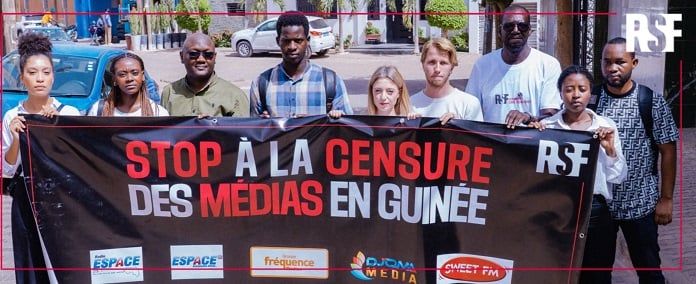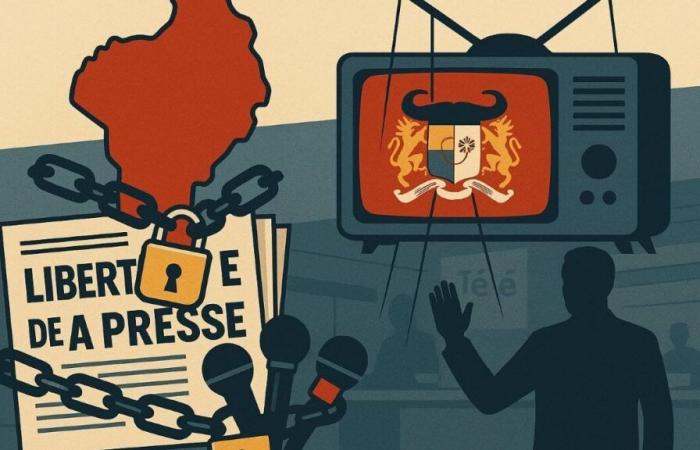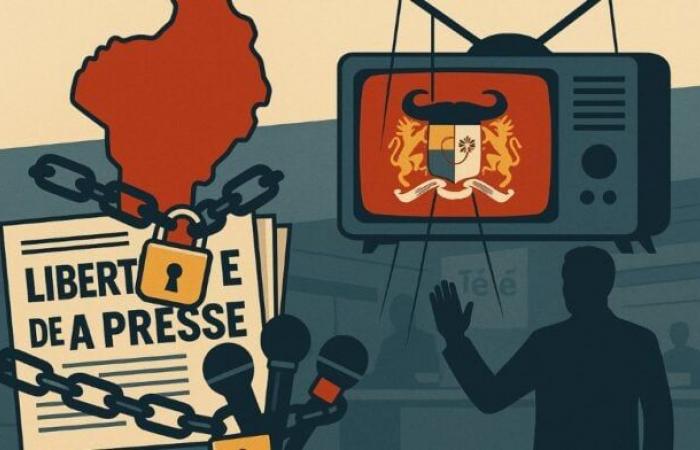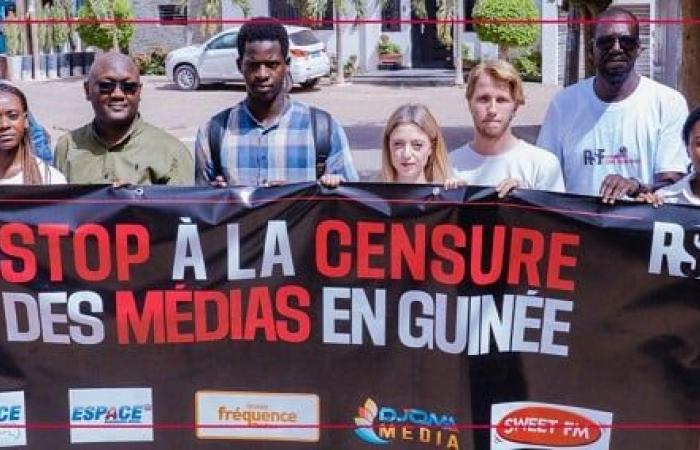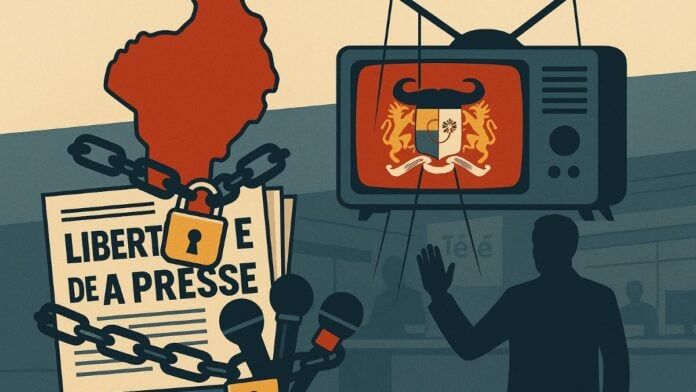
Benin has just retreated to 92ᵉ place in the global classification of press freedom 2025. For reporters without borders, this degradation results from an ever stronger grip of power over the media: editorial control of public television by a committee from the presidency, pressures targeting critical editors and recourse to the digital code to muse the votes online.
In this interview, RSF details the levers that lead the freedom to inform and call on the authorities to urgently reform regulation and legislation in order to restore real pluralism.
Benin has lost three places in the World Press Freedom ranking 2025, going from 89ᵉ to 92ᵉ position. What factors have weighed the heaviest in this degradation and what concrete actions does RSF expect from the authorities to reverse the trend?
RSF : Benin’s score has slightly fell between last year and this year, reducing its position in the world’s world freedom classification published by RSF this year. At the regional level, Benin is located at 21ᵉ place on the 48 countries in sub -Saharan Africa, going from a problematic situation to a difficult situation in 2025 – despite a fairly low decrease.
As a reminder, the score of each country depends on five contextual indicators, which make it possible to understand freedom of the press in a territory in its complexity: political, legal, economic, socio -cultural and security indicator. In this case, the factors that weighed the heaviest in this drop are the political (-15 places) and legal (-6) indicators. For example in terms of political interference in the press, since January 2024, an editorial committee made up of members from the presidency and three ministries now has a right of control over information disseminated by public television. The reports for the television news are sent to them for validation and subjects have been dismissed. This is an unprecedented interference, affecting the editorial independence of editorial staff. The media close to the opposition are subjected to strong pressures.
To reverse the trend, the authorities must completely review the composition and powers of the above -mentioned editorial committee and avoid any political interference in the production of information. Public television must offer plural coverage to Beninese capable of informing them with reliability of subjects of general interest.
In legal matters, since 2018, the digital code has been used to condemn those that exercise online, as you know, hence the need to revise it.
HAAC justifies its suspensions by the fight against “false information”. What legal or institutional guarantees should it be established for content regulation no longer employed pluralism and does not turn into censorship?
RSF : HAAC remains largely subservient to power: the latter has a decisive influence on the appointment of its main managers. Many media refrain from openly criticizing the government in order to avoid sanctions from the regulatory body. In order to reverse the trend, the mode of appointment of the regulatory body should be modified, so that it is completely independent. It is also necessary to benefit from a clearer definition of what is understood by “false information”.
3. The repression in Benin is part of a worrying regional dynamic, as in Senegal. How did RSF strengthen solidarity and coordination between Ouest -African newsrooms confronted with these attacks?
RSF continues to establish a daily monitoring of threats and atrocities against the press in sub -Saharan Africa, with particular attention to West Africa. We sometimes set up mobilization and solidarity actions, as in June 2024 after the censorship of several media in Guinea.
Journalists, in particular investigation, in West Africa often pay the high price for their surveys and revelations, and are victims of persecution, physical attacks and arbitrary arrests. To respond in a coordinated and united manner, we have set up a network of lawyers to offer them legal assistance in the event of arrest or need to seize regional judicial institutions. The creation of this network of lawyers also aims to offer journalists information meetings on their rights. He is also intended to mobilize, when necessary, several lawyers on the same case. A Beninese lawyer is also part.
